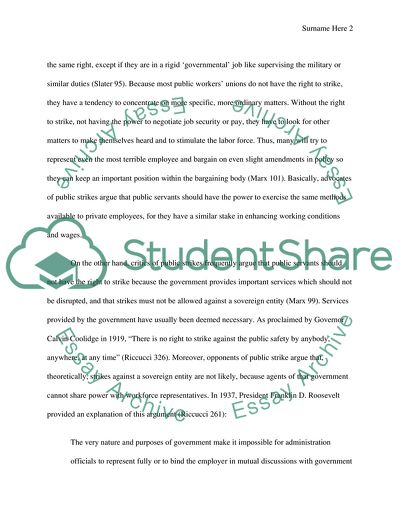Cite this document
(The Right to Strike in the Public Sector Term Paper, n.d.)
The Right to Strike in the Public Sector Term Paper. https://studentshare.org/social-science/1798762-should-public-servantslike-school-teachershospital-workerstrash-collectors-have-the-right-to-strike
The Right to Strike in the Public Sector Term Paper. https://studentshare.org/social-science/1798762-should-public-servantslike-school-teachershospital-workerstrash-collectors-have-the-right-to-strike
(The Right to Strike in the Public Sector Term Paper)
The Right to Strike in the Public Sector Term Paper. https://studentshare.org/social-science/1798762-should-public-servantslike-school-teachershospital-workerstrash-collectors-have-the-right-to-strike.
The Right to Strike in the Public Sector Term Paper. https://studentshare.org/social-science/1798762-should-public-servantslike-school-teachershospital-workerstrash-collectors-have-the-right-to-strike.
“The Right to Strike in the Public Sector Term Paper”. https://studentshare.org/social-science/1798762-should-public-servantslike-school-teachershospital-workerstrash-collectors-have-the-right-to-strike.


